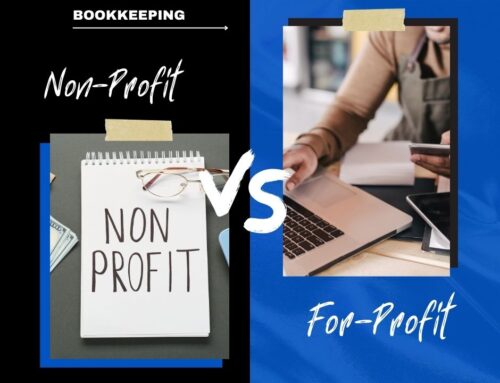Payroll is arguably the most important responsibility of an employer. But running payroll in-house can be a frustrating task, especially for small business owners.
While enterprise-level organizations have an entire human resources team and dedicated payroll staff, payroll processing usually falls on one person at the small business level—the owner or the bookkeeper.
Like other roles within your company, payroll can be outsourced.
If you want to improve the efficiency of your payroll and bookkeeping processes, outsourcing these responsibilities will be your best option.
1. Save Time
How much time does it take you or your bookkeeper to process payroll each week?
I’m not just referring to the final submission. Think about everything that needs to be done before, during, and after payroll has been processed.
- Collecting and verifying timesheets
- Calculating wages
- Submitting employee information
- Calculating bonuses and commissions
- Calculating taxes and deductions
- Preparing statements for earnings and deductions
- Maintaining all payroll records
- Generating payroll reports
- Processing information for new hires and employee terminations
- Managing and resolving any payroll problems or discrepancies
- Distributing paychecks to employees
These are just a handful of the responsibilities associated with in-house payroll. Not to mention the time spent dealing with employee questions or concerns.
Depending on the size of your business, payroll tasks can take anywhere from 10-20 hours per week. Larger organizations spend 30-40 hours per week on payroll. It’s a full-time job.
Outsourcing these tasks will give your small business bookkeeping department more time to focus on other crucial accounting responsibilities.
2. Reduce Costs
When you save time, you save money. We just discussed all the monotonous tasks associated with running payroll. Many of these tasks are labor-intensive.
Some of you might be able to save an entire employee’s salary each year with an outsourced payroll service.
There are other direct costs that can be saved or even eliminated by outsourcing your payroll needs.
Payroll software, maintenance, and training add up quickly as well. Your in-house payroll team needs to stay up to date with the latest tax regulations, so it will cost you money to replace outdated software and potentially pay for education.
Failure to do so can be even more costly. Your small business could be subject to IRS penalties if payroll is not processed correctly. But we’ll talk about this in greater detail as we continue.
3. Increase Security
Allowing an in-house employee to process payroll is risky. While it’s essential to trust your staff, some information is best kept off-limits.
In my experience, small business bookkeepers who manage payroll in-house don’t have the strictest security terms. Employee records, sensitive information, and payroll data are kept in file cabinets or on computers. Neither of which is extremely secure.
Furthermore, an in-house payroll processor knows precisely how much everyone in the company is making. This gives that employee tremendous leverage.
They could potentially negotiate a higher salary based on their knowledge. Or worse, they could leak this information to other employees, causing a frenzy amongst your workers. You don’t want to end up in a situation like this.
Outsourced payroll services are incredibly secure. Your outsourced payroll processor will keep all your records safe and backed up on multiple servers. The technology used by these companies is far superior to whatever you’re using in-house.
Always remember to follow security best practices for outsourced bookkeeping.
4. Government Compliance
For the most part, small business owners and in-house small business bookkeepers aren’t experts when it comes to tax regulations. With that said, your business is legally responsible to report both state and federal employment taxes accurately.
Any mistakes here can be extremely costly.
Roughly 33% of all employers make errors with payroll. 40% of small business owners pay an average of $845 each year in IRS tax penalties.
Not only can payroll errors lead to tax penalties and fines, but they can also result in an audit for your small business.
Tax regulations are always changing. It’s difficult for an in-house small business bookkeeper to keep up with these changes at the local, state, and federal levels. But an outsourced payroll company will always ensure compliance.
Note: According to the IRS, the employer is ultimately responsible for payroll and tax liabilities, even if they outsource those tasks to a third-party.
5. Expertise
A professional payroll organization understands the ins and outs of processing payroll at every level. It’s what they do daily for companies of all different shapes and sizes.
The expertise of an outsourced payroll service goes beyond basic payroll needs. These firms typically have knowledge related to other accounting functions and understand the legal aspects of running payroll as well.
Payroll will always be processed quickly and efficiently. You won’t have to worry about your outsourced payroll service calling out sick, going on vacation, or retiring, as you would with an in-house employee.
An outsourced payroll professional can provide guidance and valuable insights for your pay structure. They can help you balance bonuses, vacation pay, and other critical payroll components.
Similar to an outsourced bookkeeping service, there’s nothing that outsourced payroll companies haven’t seen before. So, no situation will be too challenging for them to resolve.
6. Employee Self-Service
As I said before, outsourced payroll services always use the latest and most up-to-date technology. Not only does this protect your payroll data, but it also improves the employee experience.
The best outsourced payroll services offer tools for employee self-service.
Your staff can access things like pay stubs, W-2s, benefits information, and review other crucial documents on-demand.
If someone moves and needs to change their address, or wants to switch bank accounts for direct deposit, all of this can be managed through an online employee portal.
From onboarding new employees to guiding your staff through benefit options, the self-service systems are extremely advanced.
These types of questions and responsibilities won’t have to be handled by your small business bookkeeper anymore.
7. Peace of Mind
Switching to an outsourced payroll provider will alleviate any hassles and pain points associated with processing payroll in-house.
As an owner, this will help you sleep better at night, knowing that your payroll is in good hands.
You won’t have to worry about tax filings, payments, or inaccurate wages. It’s difficult to put a price on peace of mind.
Conclusion
Outsourcing is one of the best ways to improve your small business accounting functions. It’s a simple and cost-effective way to enhance the overall performance of your company.
In addition to outsourcing payroll, you should consider outsourcing other roles as well. Outsourced bookkeeping and outsourced CFO services are increasing in popularity, especially at the small business level.
For more information about outsourcing your small business bookkeeping needs, contact us here at Navitance for a free consultation.





